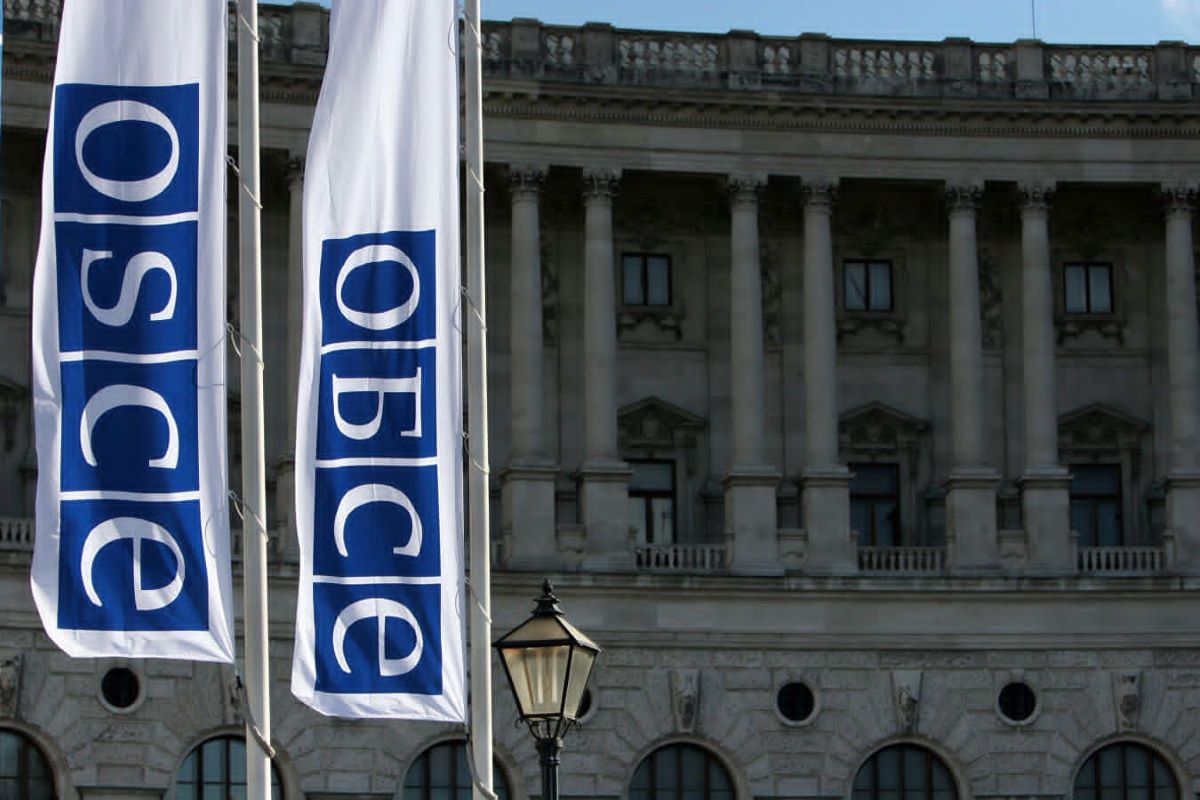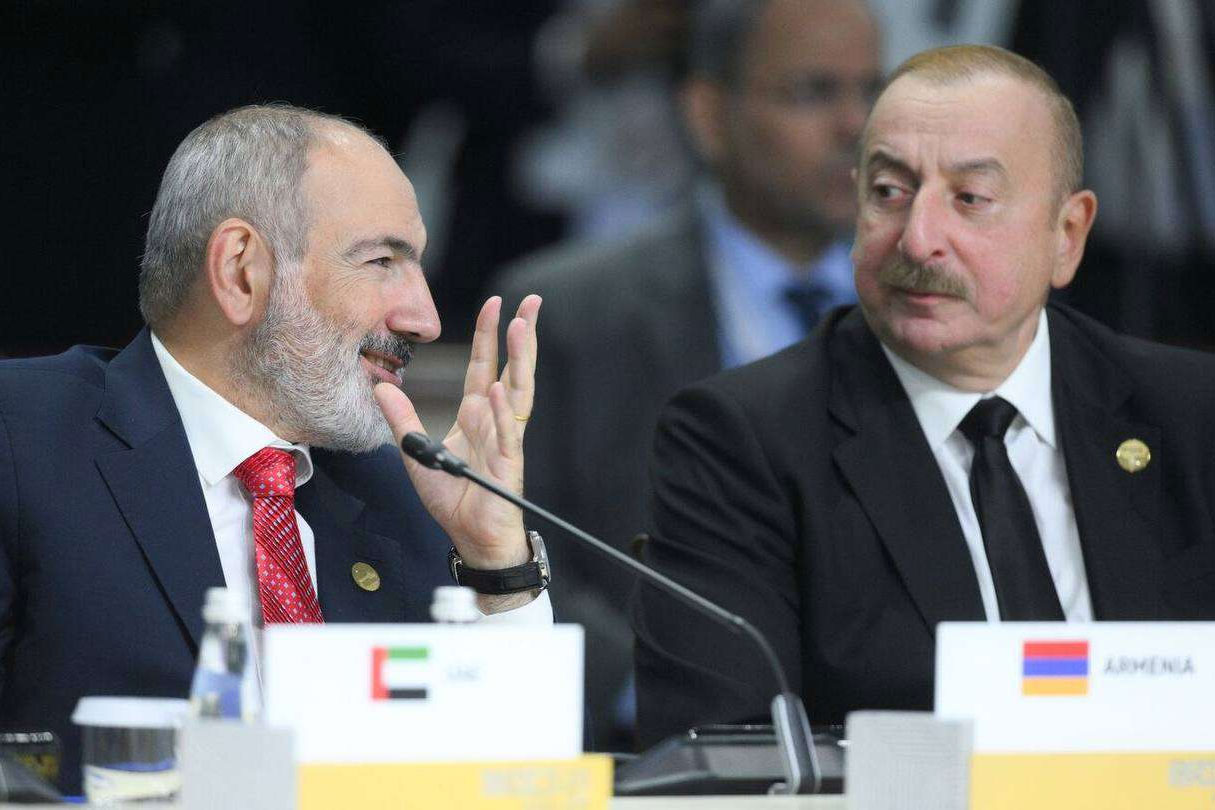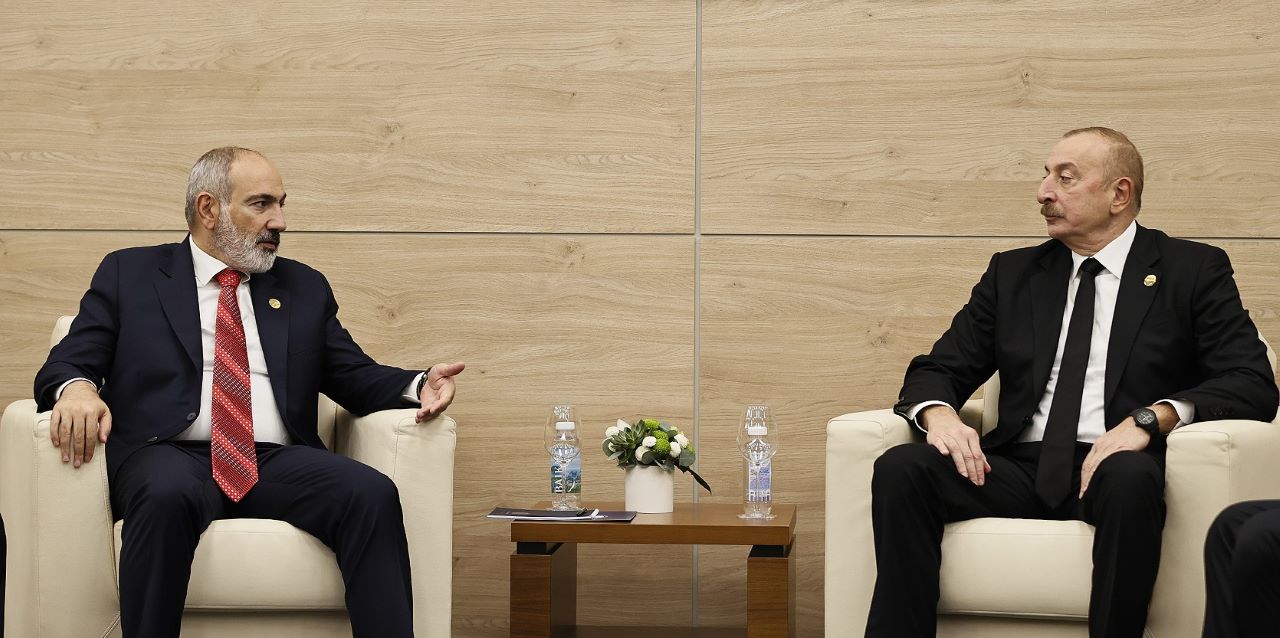Pashinyan's 12 proposals to Baku: 'Drop escalatory rhetoric'
Pashinyan’s proposal to Baku
Amid aggressive rhetoric and explicit threats recently voiced in an interview by Azerbaijani President Ilham Aliyev, Armenian Prime Minister Nikol Pashinyan has presented his proposal for “establishing long-term stability and peace in the region.” The proposal consists of 12 points.
These include dissolving the OSCE Minsk Group, which was created to mediate the Nagorno-Karabakh conflict, and withdrawing legal claims from international courts—demands previously made by Baku. Armenia’s parliamentary opposition has already criticized the prime minister for these concessions.
However, Baku deemed Pashinyan’s proposals insufficient. Azerbaijani Foreign Ministry spokesperson Aykhan Hajizade wrote on his X (formerly Twitter) page: “Pashinyan’s statements cannot be considered evidence of Armenia’s ‘good intentions.’ Prime Minister Nikol Pashinyan, let your actions speak louder than your words.”
Pashinyan combines old and new proposals
The prime minister reiterated Armenia’s earlier proposals for implementing a joint mechanism to investigate ceasefire violations and mutual arms control. Azerbaijan has yet to respond to these proposals from Yerevan.
In addition, Nikol Pashinyan proposed the following to Baku:
- Mutually refrain from escalatory rhetoric,
- Continue the delimitation process based on the experience gained in the Berkaber-Voskepar section and the regulations for the joint work of the two countries’ delimitation commissions,
- Sign a peace treaty, which is reportedly 90% ready,
- Implement the Crossroads of Peace project by resolving issues regarding Azerbaijan-Azerbaijan communication through Armenia and Armenia-Armenia communication through Azerbaijan, as outlined in Armenia’s proposals following the Kazan meeting,
- Fully resolve the issue of detainees,
- Work more intensively to determine the fate of missing persons,
- Abandon mutual claims, including those brought before international courts,
- Work on the full and effective implementation of the terms of the peace treaty,
- Fully address the issues related to refugees from both countries by forming a joint professional expert commission after the establishment of peace.
In the same Facebook post, Armenia’s Prime Minister touched on the “Western Azerbaijan” narrative, which Azerbaijan uses to refer to the entire sovereign territory of Armenia.
“‘Western Azerbaijan’ is Gazakh, Tovuz, Aghstafa, Gedabek, Dashkesan, Kalbajar, Lachin, Gubadli, and Zangilan. Beyond this territory, there is and can be no ‘Western Azerbaijan.’ If they are eager to search elsewhere, we might as well consider Nakhchivan as ‘Western Azerbaijan’,” he emphasized.
Pashinyan stated that if Baku wants to discuss the issue of refugee rights, it must first abandon the “Western Azerbaijan” narrative.
“When Azerbaijan uses the narrative of ‘the issue of returning Western Azerbaijan refugees,’ this wording itself shuts down the possibility of any discussion. It becomes clear that the refugee issue is being used to question the territorial integrity of the Republic of Armenia as a subject of international law and a sovereign state, and to establish territorial claims against Armenia,” he explained.
“Cannot be considered proof of good intentions” – reaction from Baku
Azerbaijan’s Foreign Ministry spokesperson, Aykhan Hajizade, stated that “Armenia’s peace-loving narrative ignores the most critical condition for building lasting peace and stability in the region—respect for the territorial integrity and sovereignty of states.”
Hajizade once again raised the issue of amending Armenia’s constitution. Despite all clarifications from Yerevan, Baku continues to believe that it contains territorial claims against neighbouring countries:
“If Armenia is truly interested in establishing peace with its neighbours, why does it persistently avoid initiating the process of renouncing claims to the territories they call ‘Western Armenia’ and the ‘Nagorno-Karabakh Republic,’ as enshrined in its constitution and national legislation?”
“Legal disputes do not hinder the peace process”
Armenia’s representative for international legal matters, Yeghishe Kirakosyan, stated to journalists following the prime minister’s post that all ongoing legal proceedings between Armenia and Azerbaijan continue in both the International Court of Justice (ICJ) and the European Court of Human Rights (ECHR).
He refrained from commenting on the likelihood of withdrawing cases from international courts. According to him, Azerbaijan’s proposal, echoed by Armenia’s prime minister, raises questions:
“If Azerbaijan is confident in its legal arguments, why does it propose abandoning legal proceedings? I think the answer is already clear.”
He dismissed the notion that legal disputes and the peace process are mutually exclusive, calling this a false dichotomy. He argued that in international practice, it is possible for countries to maintain diplomatic relations and good-neighbourly ties while simultaneously addressing contentious issues.
“The purpose of legal disputes, in a sense, is to establish peace. When states initiate legal disputes to resolve disagreements in a civilized manner, it signifies the rejection of the use of force and the prevention of wars,” he stated.
Expert commentary
Political analyst Tigran Grigoryan wrote on his Facebook page:
“The Armenian authorities have a unique ability. Over time, they adopt Azerbaijan’s positions or demands, convince themselves that these are their own positions and align with Armenia’s interests. Then they spend months trying to persuade Azerbaijan to accept demands that Baku itself had previously made.”
Political analyst Edgar Elbakyan told local media:
“Pashinyan, with his capitulating policies, is merely trying to save face within Armenia by making various proposals to Aliyev.
As for what is called a ‘peace agreement,’ Azerbaijan benefits from this controlled chaotic situation. That’s why Aliyev will not agree to sign any document. Azerbaijan doesn’t need a piece of paper, regardless of Pashinyan’s acceptance of another Azerbaijani demand, like dissolving the Minsk Group.
A government that promotes naive peace propaganda only leads to war. What they are proposing is not a real Armenia. What they are proposing is Turkish charity.”
Opposition MP Anna Grigoryan stated:
“The Minsk Group is doomed to inactivity. What will it do if it remains? Yes, it may not be able to achieve anything relevant at the moment. However, it is not impossible that the international context could change tomorrow. It is also not impossible that the war in Ukraine will end, and new realities will emerge. In such a scenario, this format could become operational again. Despite the loud statements from the authorities, it is not in Armenia’s interest to remain alone against Turkey and Azerbaijan.”






















